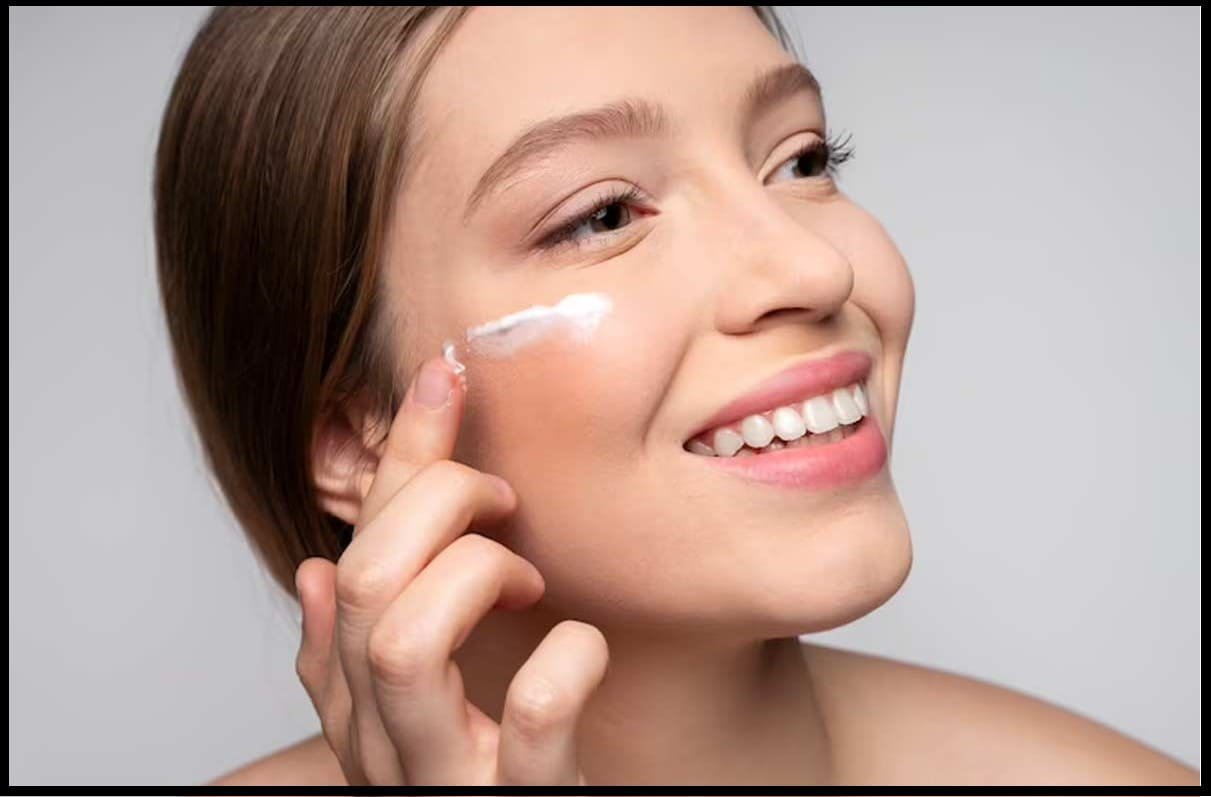Inside Article
Wear Primer Without Makeup
Primer is an essential step in any makeup routine. It helps to create a smooth and even base for your foundation, making it easier to apply and ensuring it lasts longer throughout the day. But have you ever wondered if you can wear primer without makeup?
The simple answer is yes; you can wear primer without makeup! This article will discuss the benefits of using a primer alone and how to incorporate it into your daily routine.
Makeup Primer: Introduction
Before we unveil the no-makeup perks of the makeup primer, it’s crucial to understand what this product is all about. In essence, a makeup primer forms a bridge between your skincare routine and the artistry of makeup application. It smooths out the skin’s texture, blurs imperfections, and often offers additional benefits like color correction or oil control. The goal is to create a stable, matte surface for the foundation to adhere to, ultimately leading to a longer-lasting, flawless makeup finish.
Use Primer without Makeup

Hydration and Illumination
Specific primers are infused with light-reflecting particles that perk up your complexion even when makeup takes a day off. Primers offering hydrating elements can give the skin a radiant, dewy look sans any foundation.
Pore Minimization and Texture Refinement
Have you got a day of Zoom calls lined up and wish to blur out those pores and fine lines? A silicone-based primer can effortlessly create the illusion of a smoother skin texture.
Sun Protection
Modern primers often include a smattering of SPF protection, ticking the box for sun care before any other products are involved.
Skin Conditioning and Healing
Primer recipes might contain skin-nourishing elements like vitamins, peptides, or aloe vera, giving the skin a conditioning treatment as you walk through your day.
Wearing Primer Alone
Yes, you absolutely can wear primer without makeup. It’s designed to deliver long-lasting benefits beyond its initial cosmetic perfection properties. For those who prefer a fresh-faced look, primer is the unseen hero that still works its magic without needing layers of product.You can also wear primer without foundation.
Face Primer vs. Eye & Lip Primer
All primers are not created equal; your eyes, lips, and face can attest to that. A face primer is distinct from a primer applied to the eyelids or the lips in its purpose. Each serves to prep the skin for the specific conditions and products that follow, with face primers focusing on creating an even-toned base, eye primers on intensifying and holding eyeshadow color, and lip primers providing a smooth surface for lipsticks and glosses to perform their best.
Tailoring Primers to Skin Needs
For the face, primers can be divided into several categories: moisturizing, mattifying, color-correcting, and more. Understanding your skin’s needs is the first step in deciding which primer you want to wear without the rest of the makeup entourage.
Types of Makeup Primer

Based on Purpose
- Hydrating Primers: These formulas quench the skin’s thirst, usually with hyaluronic acid, glycerin, or water-based ingredients, leaving a dewy finish.
- Mattifying Primers: Best for those with oily skin, these promise a shine-free day, often with the help of oil-absorbing silica or clay.
- Pore-Refining Primers: Silicone-based primers create a uniformly smooth skin surface, making pores and fine lines less apparent.
- Color-Correcting Primers: With shades like green to neutralize redness or peach to combat dullness, these are perfect for those addressing specific complexion concerns.
Based on Ingredients
- Silicone Primers: Known for their smoothing and flexibility-enhancing properties, these are a favorite among those seeking pore minimization and texture uniformity.
- Water-Based Primers: Lighter in consistency and great for hydrating the skin, they typically work well for all skin types, especially those on the oilier side.
- Oil-Based Primers: Rich and nourishing, they can provide a luminous base, making them ideal for drier skin types, but they may not be best suited for those prone to breakouts.
Choosing the Right Primer for Your Skin Type
The perfect primer is a matchmaking quest; your skin type is the leading player in this pursuit.
- Oily Skin: Opt for mattifying and oil-free primers to keep the skin’s natural oils at bay.
- Dry Skin: Hydrating primers with shea butter or argan oil will be a soothing choice for parched demises.
- Combination Skin: A primer that balances hydration and matte properties is best suited to the various zones of the face.
- Sensitive Skin: Fragrance-free and non-comedogenic formulations will help reduce the risk of adverse reactions.
You can also choose a concealor based on your skin type.
Steps to Apply Primer Like a Pro!

- Step 1: Start with a clean canvas—a primer locks in skincare benefits. Ensure your skin is clean, toned, and moisturized before application.
- Step 2: A little goes a long way. A pea-sized amount for the face and the merest dab for eyes and lips is generally sufficient.
- Step 3: The proper technique is everything. Use your fingers to gently massage the primer into the skin from the center of the face outward. Dabbing motion works wonders near the eyes.
- Step 4: Wait a minute or two. Allowing the primer to absorb into the skin helps it perform at its peak, just like in pre-foundation application.
Tips for Choosing the Perfect Primer
Know Your Skin Type
Understanding whether your skin is oily, dry, combination, or sensitive sets the scene for pinpointing the proper primer.
Purpose & Occasion
Decide what you want out of your primer. Is it hydration, pore-blurring, or sun protection? Different occasions may also call for different primers, such as a mattifying one on a particularly long workday or an illuminating primer if you’re stepping out for a brunch date.
Get Expert Advice
Perform a patch test before integrating a new primer into your routine. Consulting a dermatologist can provide peace of mind if you’re unsure about your skin type or particular ingredient.
Don’t Forget to Read Reviews
An oft-ignored yet invaluable tool, reviews from those with similar skin concerns can guide your primer purchasing decision.
Prime Time: The Benefits of Using Primer
Wearing primer alone may have you wondering if it’s worth the hype. We say yes! Here are a few reasons why:
- Longer-Lasting Makeup: A vital function of any primer is to help makeup adhere better and last longer.
- Pore Minimization: Primers containing dimethicone can temporarily fill in pores, making them appear less noticeable.
- Smooth Canvas: A primer evens skin texture and discoloration, creating a smooth base for makeup application.
- Sun Protection: Some primers come with SPF protection, adding an extra layer of sun defense to your routine.
- Saves Time & Effort: Wearing primer solo saves time on a busy morning and can be less overwhelming than wearing a full face of makeup.
Conclusion
Primers are a versatile and beneficial addition to any makeup routine. Knowing your skin type and concerns is critical in selecting the suitable primer, and mastering its application can increase its effectiveness. So whether you’re using it as a base for makeup or wearing it alone, consider incorporating a primer into your skincare and makeup regimen for a flawless finish! So, don’t be afraid to experiment and find the perfect prime.
Can face primer be used alone?
Yes, face primer can be used alone. As mentioned before, it has skincare benefits such as hydrating and smoothing the skin. Some primers also have color-correcting properties, making them suitable for evening out skin tone and providing a subtle coverage. However, if you prefer more coverage, it is recommended to use primer as a base before applying foundation or concealer.
Is it OK to wear primer everyday?
Yes, it is perfectly fine to wear primer everyday. In fact, using primer daily can improve the overall appearance and health of your skin. Just make sure to choose a primer that is suitable for your skin type and concerns.
What is the best primer for without makeup?
The best primer for wearing without makeup will depend on your specific skin needs and preferences. Some popular options include hydrating primers for dry skin, mattifying primers for oily skin, and color-correcting primers for uneven skin tone. It is best to read reviews and do some research to find the perfect primer for your bare-faced look. However, make sure to always patch test and choose a primer that is suitable for your skin type to avoid any potential irritations or breakouts.
Is it OK to wear primer everyday?
Yes, it is safe to wear primer everyday as long as you choose one that is suitable for your skin type and concerns. As mentioned before, using primer daily can actually benefit your skin by providing hydration and evening out skin texture. Just make sure to always remove your makeup and thoroughly cleanse your face at the end of the day to avoid any potential buildup or clogged pores. Experiment with different types of primers to find the perfect one for your daily routine. And remember, always listen to your skin and give it a break from makeup when needed.

